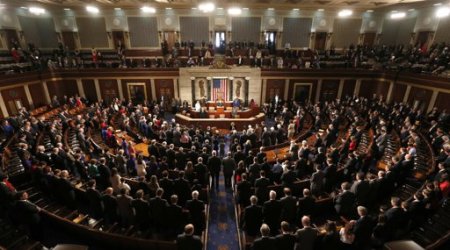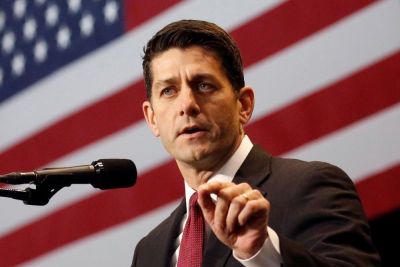How Many Christians Are in the New Congress?

Nine in 10 members of the in-coming United States Congress consider themselves Christian, according to findings released by Pew Research Center.
Pew's Religion & Public Life found that 90.7 percent of the 115th Congress identify as Christian, a statistic that has changed little in over a half century of keeping record.
"The share of U.S. adults who describe themselves as Christians has been declining for decades, but the U.S. Congress is about as Christian today as it was in the early 1960s," noted Pew.
"91% describe themselves as Christians. This is nearly the same percentage as in the 87th Congress (1961 to 1962, the earliest years for which comparable data are available), when 95% of members were Christian."

Of the 91 percent Christian majority, 31.4 percent are Catholic, 13.5 percent are Baptist, 8.5 percent are Methodist, 6.5 percent are Anglican or Episcopal, and another 6.5 percent are Presbyterian.
This layout reflects the general population's majorities, as the three largest religious denominations in the United States are Roman Catholic, Southern Baptist, and United Methodist.
Pew also found that while both Democratic and Republican congressmen were overwhelmingly Christian, the former was more diverse in its religious identifications.
"Among the 293 Republicans elected to serve in the new, 115th Congress, all but two identify as Christians; there are two Jewish Republicans – Lee Zeldin of New York and David Kustoff of Tennessee – who both serve in the House," continued Pew.
"The 242 Democrats in Congress include 28 Jews, three Buddhists, three Hindus, two Muslims and one Unitarian Universalist – as well as the only member of Congress to describe herself as religiously unaffiliated, Rep. Kyrsten Sinema, D-Ariz. In addition, all 10 members of Congress who decline to state their religious affiliation are Democrats."
The percentage of Christians in the 115th Congress is only slightly smaller than it was for the 114th Congress, which began in January of 2015.
Pew noted back at the beginning of 2015 that 91.8 percent of Congress was Christian, compared to 73 percent of the general population.
"As was the case in the 113th Congress, the biggest difference between Congress and the general public is in the share of those who say they are religiously unaffiliated," reported Pew in 2015.
"This group makes up 20% of the general public but just 0.2% of Congress. The only member of Congress who describes herself as religiously unaffiliated is Rep. Kyrsten Sinema, D-Ariz."
Some, including Hemant Mehta of the Patheos blog "The Friendly Atheist," have argued that there are actually more non-theist members of Congress than the numbers imply.
"There's very little doubt in my mind that there are more Unaffiliated, non-religious Americans in Congress, but they dare not say so because it would be political suicide where they come from," wrote Mehta in 2015.
"In the past several years, that pressure to stay in the closet has been strong ... but not everywhere in the country. Maybe we'll soon see more candidates at least not declaring a religious affiliation (even if they don't say 'Unaffiliated')."





















